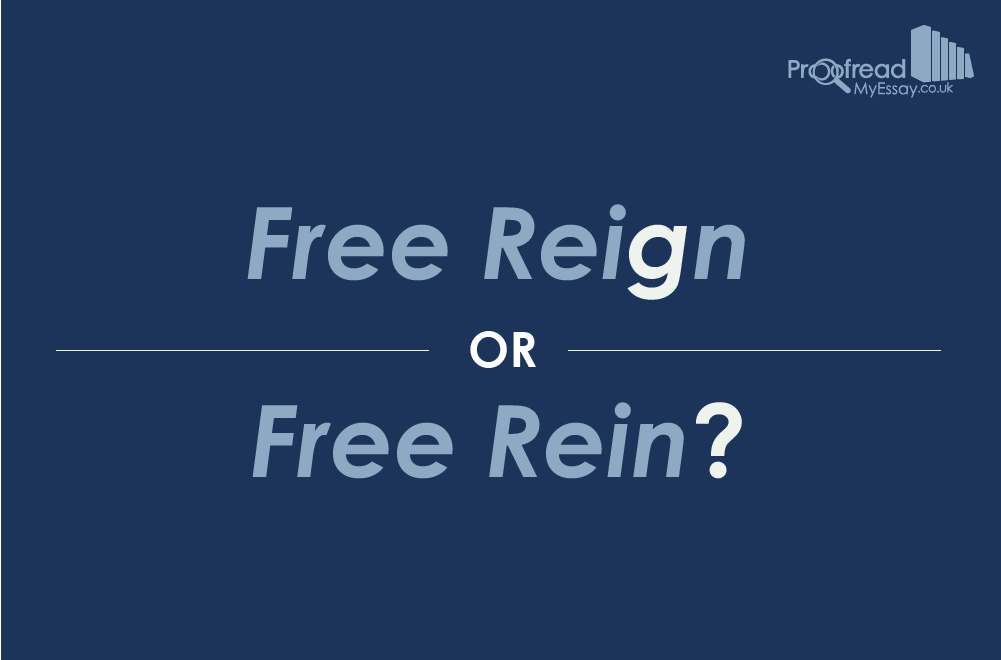Welcome to Idiom Corner! This is where we look at some commonly confused figures of speech from English, beginning with ‘free rein’ and ‘free reign’.
Although both formulations are common these days, the original (and correct) version is ‘free rein’. But why? And what exactly does ‘free rein’ mean?
‘Free Rein’ Means…
To give someone ‘free rein’ means to give them the freedom to do or say whatever they want:
The designers were given free rein to try new ideas.
The term ‘rein’ here refers to the straps that guide a horse’s movement, so ‘free rein’ means ‘to give someone freedom’ in the same way that holding the reins loosely gives a horse freedom to move.

The Confusion: Rein vs. Reign
Unfortunately, the term ‘rein’ is very easily confused with ‘reign’, the act of ruling as a king or queen. This term can be used like this:
King Henry VII reigned over England from 1485 to 1509.
Find this useful?
Subscribe to our newsletter and get writing tips from our editors straight to your inbox.
Because they sound similar, many people think the phrase ‘free rein’ is spelled ‘free reign’.
This mistake is easy to make. After all, as well as sounding the same as ‘free rein’, ‘free reign’ could imply ‘the freedom to behave like a king’.
Confusions of this sort are known as ‘folk etymologies’, since how a term is understood can change depending upon its use.
Free Rein or Free Reign?
In speech or informal writing, the phrase ‘free reign’ is unlikely to cause confusion. However, in formal writing, idioms can help you express yourself clearly, so it makes sense to get into the habit of using ‘free rein’ correctly.
The best way to do this is to keep in mind the equestrian connection: the ‘reins’ in ‘free rein’ are those used to steer a horse, not the ‘reign’ of a monarch.
This is also why the phrase ‘rein in’ means ‘to bring something under control’.



